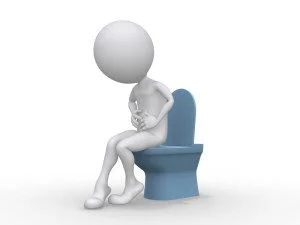Neurogenic Bladder
What is neurogenic bladder?

The bladder can become either overactive (spastic or hyper-reflexive) or underactive (flaccid or hypotonic)
- Overactive bladder (often seen with strokes, brain diseases and Parkinson’s disease). With overactive bladders, urination is frequent and uncontrolled, capacity is low and there is incomplete emptying. Bladder capacity may decrease because it is rarely filled to capacity. Residual urine, left if the bladder is not emptied completely, may lead to increased risks of urinary tract infections.
- Underactive bladder (common in diabetes, polio, syphilis, multiple sclerosis, and prior radical pelvic surgery). With underactive bladders, there is a diminished sense of when the bladder is full and individuals cannot contract the sphincter muscles sufficiently, allowing urine to leak from the urethra as the bladder fills beyond its limits.
Causes
Conditions that can precipitate a neurogenic bladder include
- Brain or spinal cord injury
- Diabetes
- Acute infections
- Neurological disorders including Parkinson’s disease and stroke
- Genetic nerve disorders
- Heavy metal poisoning
Symptoms
- Urinary incontinence
- Frequent urination (urinating eight or more times daily)
- Urgency (feeling the need to urinate immediately)
- Dribbling urine
- Loss of sensation of bladder fullness
- Painful urination which may result from a urinary tract infection
- Kidney stones
Diagnosis
Diagnostic tests can include:
- The skull and spine may be examined with X-rays, computed tomography (CT), and magnetic resonance imaging (MRI)
- An EEG to measure electrical activity in the brain
- Imaging tests of the bladder and ureters
- Urodynamic studies (bladder function tests) to measure bladder capacity, bladder pressures, the flow of urine, and bladder emptying.
- Cystoscopy (where a telescope is used to examine the inside of the bladder and urethra)
How is Neurogenic Bladder Treated?
Your healthcare provider will work with you to decide on a treatment plan that is appropriate for what is causing the neurogenic bladder. Some neurogenic bladder treatment options include:
- Lifestyle changes: These might include avoiding certain foods or drinks that can irritate your bladder. These include alcohol and certain caffeinated drinks like coffee and soda. Good blood glucose management for people with diabetes and constipation management can also help.
- Clean intermittent catheterization (CIC): Catheters are thin, flexible tubes that can be inserted through your urethra and into your bladder to drain urine. You can learn how to do this yourself so that you can empty your bladder on your schedule.
- Continuous catheterization: This method calls for a catheter to be worn at all times. The catheter is a small tube that can be placed through your urethra or the lower abdominal wall (suprapubic tube).
- Drugs: Medications that treat neurogenic bladder include oxybutynin, tolterodine, mirabegron, solifenacin succinate, and others.
- Injections of botulinum A toxin (Botox®): Your healthcare provider injects botulinum A toxin into your bladder or urinary sphincters.
- Bladder augmentation (augmentation cystoplasty): In this surgery, a surgeon removes segments of your intestine (sigmoid colon) and attaches them to the walls of your bladder. This reduces the bladder’s internal pressure and increases its ability to store urine.
- Ileal conduit: Part of the small bowel is used to make a urine stoma. This stoma drains to a bag attached to the outside of the body.
Absorbent undergarments, pads, panty shields, panty liners, and adult diapers can help prevent wetness and odors while protecting skin and clothing. Bed pads can protect sheets and mattresses.
What Complications are Related to Neurogenic Bladder?
People who have neurogenic bladder are at higher risk for other urological problems, including repeated infections, kidney damage, vesicoureteral reflux, and stones that form in the urinary tract.
People with bladder control conditions such as neurogenic bladder may experience the quality of life issues. It’s important to recognize these issues and get help with them.

